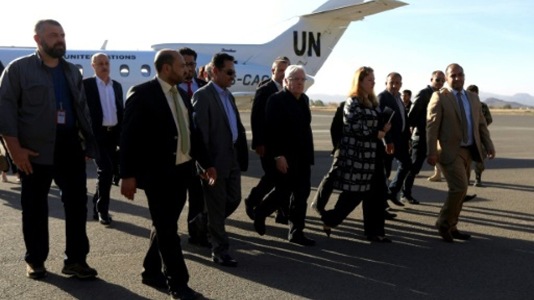DUBAI, Jan 29, 2019 (BSS/AFP) – The UN envoy for Yemen briefly visited the
flashpoint city of Hodeida Tuesday, an official said, the diplomat’s first
trip there since warring parties agreed to a ceasefire last month.
Martin Griffiths was in the Red Sea port city “for a few hours” to oversee
the truce deal’s implementation and “follow up on preparations” for a new
monitoring mission, the UN official told AFP on condition of anonymity.
Yemen’s government and Huthi rebels reached a deal over Hodeida at peace
talks brokered by Griffiths in Sweden last month.
The agreement stipulates a full ceasefire, followed by the withdrawal of
rival forces from the city — two clauses that have yet to be fulfilled.
The United Nations Security Council this month unanimously adopted
Resolution 2452, which calls for the deployment of up to 75 monitors to
oversee the fragile ceasefire and pullback of forces from Hodeida.
Held by Iran-backed Huthi rebels since 2014, the Red Sea city is home to
the impoverished Yemen’s most valuable port, a vital conduit for life-saving
aid to a country on the brink of famine.
Hodeida was for months the main front line in the Yemen war after pro-
government forces, backed by a Saudi-led military coalition, launched an
offensive to capture it in June.
But since the ceasefire agreement came into force on December 18, a
precarious calm has returned to the city, despite each side accusing the
other of violations.
Griffiths said Monday that the deal’s timeline had also been extended.
“That momentum is still there, even if we have seen the timelines for
implementation extended, both in Hodeida and with regard to the prisoner
exchange agreement,” he told Saudi-owned Arabic newspaper Asharq Al-Awsat.
The Yemen conflict has killed some 10,000 people since a Saudi-led
military coalition intervened in support of the beleaguered government in
March 2015, according to the World Health Organization.
Human rights groups say the real death toll could be five times as high.
The war has pushed 14 million Yemenis to the brink of famine in what the
United Nations describes as the world’s worst humanitarian crisis.



